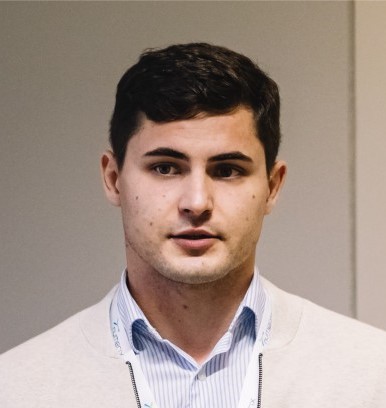Convergence of the fixed-point iteration for the Bass Local Volatility model
via ZoomSpeaker Dr. Gudmund Pammer, Dept. of Mathematics, ETH Zürich Abstract: The Bass local volatility model introduced by Backhoff-Veraguas–Beiglböck–Huesmann–Källblad is a Markov model perfectly calibrated to vanilla options at finitely many maturities, that approximates the Dupire local volatility model. Conze and Henry-Labordère show that its calibration can be achieved by solving a fixed-point nonlinear integral equation. […]
Risk budgeting portfolios: Existence and computation
via ZoomSpeaker: Prof. Olivier Guéant, Department of Applied Mathematics, Université Paris 1 Panthéon-Sorbonne Abstract: Modern portfolio theory has provided for decades the main framework for optimizing portfolios. Because of its sensitivity to small changes in input parameters, especially expected returns, the mean-variance framework proposed by Markowitz (1952) has however been challenged by new construction methods that […]
On subordinated generalizations of 3 classical models of option pricing
via ZoomSpeaker: Dr. Grzegorz Krzyżanowski, Hugo Steinhaus Center, Faculty of Pure and Applied Mathematics, Wroclaw University of Science and Technology Abstract: We will investigate the relation between Bachelier and Black-Scholes models driven by the infinitely divisible inverse subordinators. Such models, in contrast to their classical equivalents, can be used in markets where periods of stagnation are […]
Good for the Planet, Good for the Wallet: The ESG Impact on Financial Performance in India
Department of Mathematics & Statistics, TTUSpeaker: Prof. Tauhidul Islam Tanin, EGADE Business School, Technologico de Monterrey Abstract: We examine the impact of ESG practices on financial performance among Nifty 50 companies in India from 2015 to 2022. Utilizing fixed-effects panel quantile regression, we observe that the relationship between ESG practices and financial profitability varies across the ROE distribution. While the […]
On the implied volatility of European and Asian call options under the stochastic volatility Bachelier model
via ZoomSpeaker: Makar Pravosud, Department of Economics and Business, Universitat Pompeu Fabra Abstract: In this paper we study the short-time behavior of the at-the-money implied volatility for European and arithmetic Asian call options with fixed strike price. The asset price is assumed to follow the Bachelier model with a general stochastic volatility process. Using techniques of […]
Unpacking the ESG ratings: Does one size fit all?
via ZoomSpeaker: Prof. Monica Billio, Department of Economics, Ca’ Foscari University of Venice Abstract: As ESG investing goes mainstream, investors increasingly rely on ESG ratings when making investment decisions. This study aims to delve into the overall ESG ratings provided by four prominent ESG data providers, focusing on their accounting methodologies, the relevance of the three […]
On the Bachelier implied volatility at extreme strikes
via ZoomSpeaker: Dr. Fabien Le Floc’h, Nasdsaq Abstract: Roger Lee proved that the Black-Scholes implied variance can not grow faster than linearly in log-moneyness. This paper investigates what happens in the Bachelier (or Normal) implied volatility world, making sure to cover the various aspects of vanilla option arbitrages.
Bayesian Optimization of ESG Financial Investments
via ZoomSpeaker: Prof Eduardo César Garrido Merchán, Faculty of Economics and Business Sciences, Comillas Universidad Pontificia Abstract: Financial experts and analysts seek to predict the variability of financial markets. In particular, the correct prediction of this variability ensures investors successful investments. However, there has been a big trend in finance in the last years, which are […]
Supermartingale Brenier’s Theorem with full-marginals constraint
via ZoomSpeaker: Prof. Dominykas Norgilas, Department of Mathematics, North Carolina State University Abstract: We explicitly construct the supermartingale version of the Fréchet-Hoeffding coupling in the setting with infinitely many marginal constraints. This extends the results of Henry-Labordere et al. obtained in the martingale setting. Our construction is based on the Markovian iteration of one-period optimal supermartingale […]
Semi-analytic pricing of American options in some time-dependent jump-diffusion models
via ZoomSpeaker: Prof. Andrey Itkin, Department of Risk and Financial Engineering, Tandon School of Engineering, NYU Abstract: In this paper we propose a semi-analytic approach to pricing American options for some time-dependent jump-diffusions models. The idea of the method is to further generalize our approach developed for pricing barrier, , and American, , options in various […]











